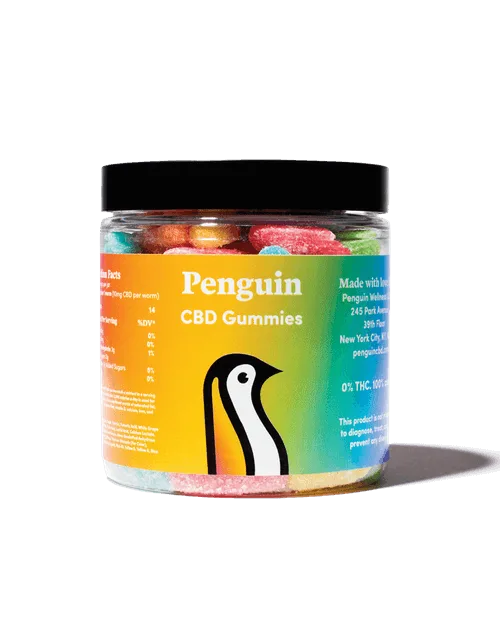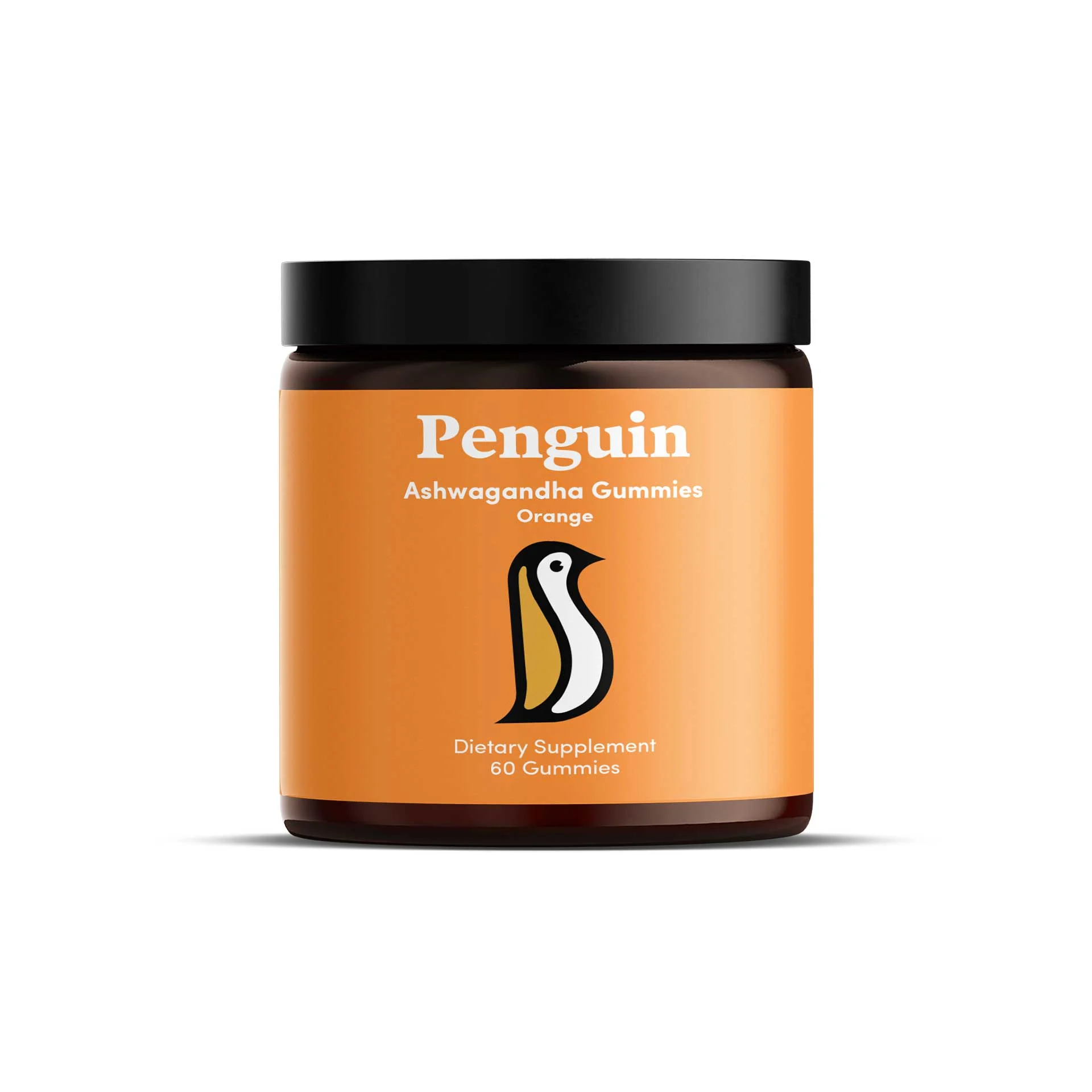5 Possible Reasons Why CBD Is Not Working for You
 By Penguin CBD
By Penguin CBDHumans are complex biochemical creatures. For example, something as relatively small as the presence or absence of a protein in a red blood cell can determine if you get malaria or not. You can be born with a set of genes that may put you at greater risk for diabetes, addictions, heart disease, frequent infections or autoimmune disease, while your sibling never has a sick day in their life.
One person may do very well on a certain medication, while the next person claims it is useless and did nothing for them. One person taking an antidepressant may get worse, while another taking the same antidepressant is finally able to hold on to a job.
First Things First
There are many factors that can play a role in how any substance affects you, and CBD is no exception. All substances that you take into your body have to go through a set of processes, depending on the size and type of substance ingested. Larger substances may have to be digested, but both large and small substances need to be absorbed into the body via the blood.
If you are using a topical skin application, it needs to be absorbed into that area of skin and will not likely get into the blood in any appreciable amounts. That absorption can depend on a lot of things, like how much you take, how often you take it, how pure the substance is, and if you are using a liquid or a solid.
Getting absorbed into the body is not necessarily a simple process. Small substances have an easier time getting into the blood than larger substances. Substances taken orally, like CBD oil, have to pass through the liver first.
Substances such as CBD cream that are applied to the skin can bypass the liver, but since skin has lots of fat in it, those substances that can dissolve in fat will have an easier time than those that can only dissolve in water.
The bottom line: If a substance is not well absorbed into the blood it won’t do you much good.
What Happens in the Body?
Once a substance gets into your body, it has to get to wherever the problem is so it can have its desired effect. That means it has to get into the cells in the tissue or organ that is causing a problem. The body has developed quite a few ways to let certain substances into cells.
The process can require energy, a receptor on the surface of the cell that latches onto the substance and brings it into the cell—for CBD, that would be the CB2 receptor. Or the process can be passive, requiring time, but no cellular energy.
The substance is in the cells—what now? Well, that depends on how it operates. Some substances need to get into the nucleus of the cell to redirect gene expression. Others need to change the way a protein is made or used. Still others may go into an organelle.
CBD likely stays outside the cell, latches onto its receptor and changes the shape of the CB2 (or CB1) receptor, allowing that changed receptor to send a signal to the cell. It is believed that CBD acts by decreasing the actions of the enzymes that break down the endocannabinoids, leaving higher levels of these endocannabinoids.
These are factors that can make a substance more or less bioavailable—meaning how much CBD (or anything else) is able to reach those cells, tissues and organs in order to have an effect.
Five Possible Reasons CBD Is Not Working for You
1. Your potency is not ideal. Finding an ideal potency can be a time-consuming process. Start low and go slow. Start with a small amount, using capsules, gummies or oil.
Gummies and oils have an advantage here because you can adjust the amount of CBD you are getting by cutting the gummy or using a quarter or half of a dropper of tincture.
Try this lowest amount for a few days. If you are satisfied, you’re done! If you think you can improve, increase by as small an amount as can be managed and use that slightly higher amount for a few days, keeping track of how well you are responding. Keep slowly increasing the amount of CBD and keep track of the results. You will likely find what works best for you within a few weeks.
2. Your timing needs to be adjusted. Some people do much better taking a smaller amount of CBD two to three times a day rather than a larger amount once a day. This has a lot to do with how CBD is metabolized and how much is in your body at any one time to bind to its receptor.
Following the rule “start low and go slow,” you will not only be determining the best amount; you can also determine whether you gain the most benefit by trying a smaller quantity taken throughout the day.
This works best when your goal is to achieve pain reduction or mood effects, as opposed to a single measured amount, which works better when someone is trying to get better sleep.
3. You haven’t given the CBD enough time to have an effect. We are used to immediate gratification, but plant products don’t really work that way.
They need to build up in your body (as discussed above), and you may need to wait until the results are detectable! Your body often wants to repair itself and get better, but time is an important part of the healing process.
4. Delivery systems. In pharmacology, we talk about different delivery systems. Taking something by mouth goes through a different process than putting something on your skin. Oral delivery systems can make a difference too—taking a dropperful of tincture or oil and letting it sit under your tongue for 60 seconds can be different than eating a gummy.
Different delivery systems (topical, oral, edible, vaping) can lead to different bioavailabilities. Here are some general guidelines:
- Topicals are best for targeting specific problems. Topical creams can be used over wider areas.
- Vaping works fastest but doesn’t last long—I usually don’t recommend vaping.
- Oils work best if you first allow them to stay under your tongue for 30-60 seconds and then swallow. This is because the area under your tongue allows for faster absorption and skips what is known as the “first pass metabolism.” The first pass metabolism is the process by which the absorbed CBD (and most other substances) have to pass through the liver—and may be metabolized by the liver, leaving you with smaller amounts available in your body. Topical applications also avoid the first pass metabolism. Most tinctures and oils (once you find your ideal amounts) work within 30-60 minutes and last two to three hours.
- Gummies and other edibles take a bit longer to have an effect but may last a bit longer. Edibles have the distinct advantage of tasting good, too! While many people love the different flavors available in Penguin CBD oils, they love our gummy flavors as well.
- Capsules are perhaps the most consistent option because they have a defined amount—like the 10mg you get in our CBD capsules. They usually act within one hour, and can last for two to four hours. For those who prefer no “hempy” flavor at all, capsules are ideal.
5. Momma always said that “you get what you pay for.” There are more than a few low-quality CBD products out there. Businesses take shortcuts that can lower the quality of the CBD in their products. It shouldn’t come as a surprise that lower-quality CBD (if it even is CBD) will affect your results.
This is why third-party testing is so important and why we here at Penguin CBD provide an easy link to our independent lab results. We’re proud to ensure that the quality of our products is there for everyone to see.









